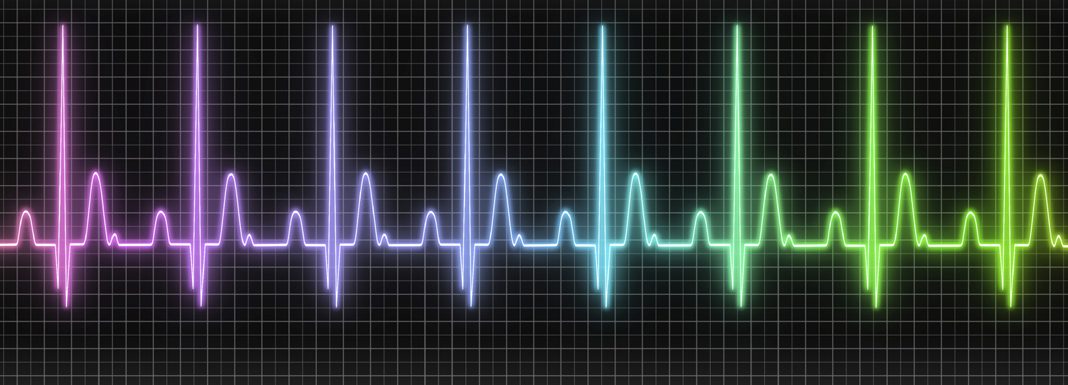High blood pressure (greater than 130/90 before you go to bed at night) markedly increases risk for heart attacks, strokes, heart failure, and premature death. Almost 50 percent of North American adults have high blood pressure, and it causes more than 80,000 U.S. deaths each year. Many people who have high blood pressure do not know that they have it and do nothing to prevent or treat it (Circulation, Jan 31, 2018;137:e67–e492).
A plant-based diet can help to prevent and treat high blood pressure (J Geriatr Cardiol, May 2017;14(5);PMC5466938). Your blood pressure is partially regulated by the more than 100 trillion bacteria on your colon, and what you eat determines which bacteria grow in your colon. Healthful colon bacteria help to lower blood pressure and harmful colon bacteria can raise it. A high-plant diet helps to lower high blood pressure since foods that come from plants have lots of soluble fiber, which encourages the growth of healthful colon bacteria.
Short Chain Fatty Acids from Soluble Fiber
You cannot absorb whole foods. Food is first broken down into carbohydrates, fats and proteins, but you can’t absorb these either. Before they can be absorbed, carbohydrates must be broken down into single sugars, fats into fatty acids, and proteins into single amino acids or chains of amino acids. Enzymes in your intestines do much of this work, but you do not have the enzymes to break down fiber, so it passes to your colon. There are two types of fiber: soluble fiber, which gets broken down by the healthful bacteria in your colon so it can be absorbed; and insoluble fiber, which cannot be broken down and is eliminated in your stool.
Healthful gut bacteria have the enzymes necessary to break down soluble fiber into short chain fatty acids (SCFAs) that pass from the colon into the bloodstream and then to the kidneys, which lowers high blood pressure in animals (Physiological Genomics, Feb 2017;49(2): 96-104) and in humans (Hypertension, Oct 2001;38(4):821-6). SCFAs also:
• strengthen your immune system to help protect you from infections
• help to prevent obesity
• help to prevent heart attacks and some types of cancers.
How SCFAs Help to Prevent High Blood Pressure
• The kidneys have special SCFA receptors that affect the production of hormones that control blood pressure: renin and Olfr78 that raise it, and Gpr41 that lowers it (Gut Microbes, 2014;5(2):202-207).
• Usually Gpr41, which lowers blood pressure, keeps blood pressure from rising too high so it stays in the normal range.
• To prevent blood pressure from dropping too low, Olft78 calls out renin that can raise blood pressure (Cell Physiology, Dec 2014;307(11):C979-C985).
• SCFAs can reduce kidney secretion of renin that constricts blood vessels and raises blood pressure (PNAS, March 12, 2013 110 (11) 4410-4415).
• Several studies have demonstrated the action of SCFAs by removing gut bacteria from the colon with antibiotics, which prevented soluble fiber from lowering high blood pressure (Gut Microbes, 2014;5(2):202-207).
How the Unhealthful Bacteria Can Raise Blood Pressure
Instead of just eating the same food that you eat, the unhealthful bacteria try to get food by invading the cells lining your colon. Your immune system responds by producing lymphocytes and other white blood cells and chemicals called cytokines that try to destroy these invading bacteria. If these unhealthful bacteria keep on trying to invade your colon cells, your immune system stays on all the time (inflammation) and attacks you in the same way that it attacks invading organisms. Inflammation can damage your own tissues and increase your risk for heart attacks, certain cancers, strokes, diabetes, autoimmune diseases, obesity and so forth.
The pro-inflammatory foods (such as sugar-added foods and drinks, fried foods, red meat and processed meats) encourage the growth of harmful bacteria (BMJ, June 13, 2018;361; J Transl Med, Apr 8, 2017;15:73), which increases inflammation (Advances in Nutrition, Jan 1, 2016;7(1):76–89) and thus can raise blood pressure (J of the Amer Heart Assoc, June 30, 2017;6(7):e005729).
My Recommendations
Up to 90 percent of North Americans have or will develop high blood pressure. Most cases of high blood pressure come from unhealthful lifestyles that cause inflammation. High blood pressure can often be prevented and treated by:
• eating a high-plant diet with lots of vegetables, fruits, whole grains, beans, nuts and other seeds
• restricting red meat, processed meats, fried foods, sugar-added foods, and all drinks with sugar in them (including fruit juices)
• avoiding overweight
• exercising every day
Checked 11/10/20


